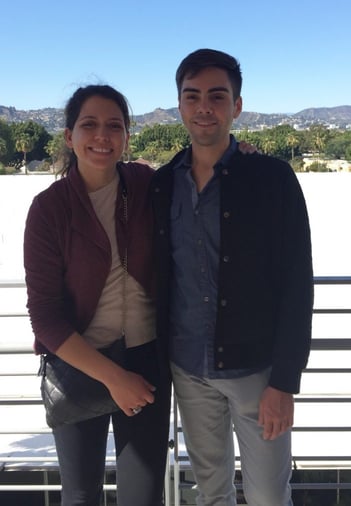I have always been cognizant of the health disparities and difficulty in accessing care that is pervasive in the LGBTQ community. These barriers exist due to the increased rate of poverty, lack of insurance, and non-affirming healthcare for LGBTQ individuals, among others. My own lived experience as a queer man and the stories of other queer folks trying to access healthcare are a huge reason why I committed my life to service through medicine.
Recently I’ve come to recognize that conversations around reproductive health are seldom had amongst LGBTQ folks. To a lesser extent, conversations particularly about abortion care are rarely initiated by providers with their LGBTQ patients. As I reflected on my own understanding of what abortion care looks like, I recognized a significant gap in my knowledge of available resources. Believe it or not, abortion education is limited in medical school, so I looked into other ways to fill this gap. Medical Students For Choice (MSFC) is an organization dedicated to providing education on reproductive health and abortion care for medical students in the US and internationally. Thanks to a fellow classmate, I stumbled upon the MSFC Abortion Training Institute (ATI). Guided by my commitment to the wellness of the LGBTQ community and desire to be prepared with the most up-to-date information on services available, this fall I participated in the MSFC ATI.

William J. Levy Point Scholar Jose Cortez with a friend at the MSFC Abortion Training Institute
Before the training, I had been caught up in my typical medical student world, frantically trying to memorize stuff while keeping my research afloat and trying to fit in some self-care. However, my life completely shifted gears as soon as I arrived at the training. My first evening there I got to meet some of the most passionate, badass medical students from around the country fighting for reproductive justice (my best friend was there too!) and we shared stories about what abortion education and care looks like in our respective states. The rest of the weekend was similarly full of inspiring stories from providers who had made the commitment to be visible abortion doctors. We also received a lot of specific information on what 1st and 2nd trimester abortions looked like, and the different options available for individuals. We even got the opportunity to practice 1st and 2nd trimester abortion procedures, including a manual vacuum aspiration on a papaya, and dilation and evacuation using a cantaloupe.
I found myself intellectually stimulated the entire time I was there, but I couldn’t help but feel like something was missing. I realized all of the conversations we were having made the assumption that pregnancy was something that only happened for heterosexual cis women. My primary question going into the training on what reproductive health and abortion care looked like for LGBTQ folks remained unanswered throughout the training. My question today is STILL unanswered.

The work that MSFC has been able to accomplish over the last 25 years inspires me to do my part and use my experiences to continue to improve access to abortion care for all. I am unsure what type of physician I will be at this stage in my training. However, I think knowledge of abortion care is useful for any provider to have, whether they are offering this care to their patients regularly or not. Providers who do not end up becoming abortion doctors for their patients may still be able to advocate for them on their behalf, and they will be best equipped to do this by having a thorough understanding of the options and services available.
I now see that my own advocacy for the LGBTQ community has been lacking in reproductive health justice. My experience at the MSFC ATI has inspired me to be an active agent of change, to increase abortion care education and access for LGBTQ folks. Despite this, I am still not sure what my advocacy for LGBTQ reproductive health and abortion care will look like. However, I’m open to any ideas and I invite others to join me in this work!
 This post was written by William J. Levy Point Scholar Jose Cortez.
This post was written by William J. Levy Point Scholar Jose Cortez.
Jose is studying at the UC Berkeley-UCSF Joint Medical Program (JMP), and is participating in the Program in Medical Education for the Urban Underserved to become a leader in urban underserved care. Jose aspires to improve access and quality of health care for LGBTQ+ and other marginalized individuals. Read more about Jose here.

